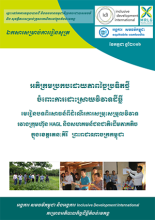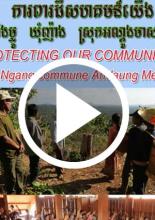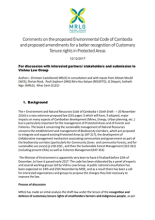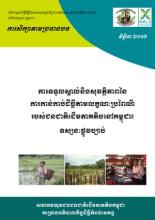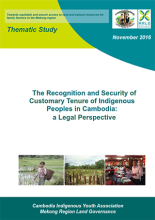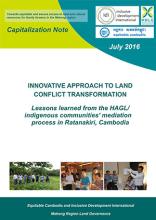Land Library
Welcome to the Land Portal Library. Explore our vast collection of open-access resources (over 74,000) including reports, journal articles, research papers, peer-reviewed publications, legal documents, videos and much more.
/ library resources
Showing items 1 through 9 of 9.In the Mekong region, conflicts between local communities and large scale land concessions are widespread. They are often difficult to solve.
The NGO Forum on Cambodia, in cooperation with the Ministry of Agriculture, Forests and Fisheries, organized a national consultation workshop on 19-20 December 2016 on the sixth version of the draft Cambodian Agricultural Land Law.
This video is part of one of the major activities of the L&A initiative “Collective Learning on Land Conflict Resolution” in Cambodia. It shows how important the solidarity of villagers is important to prevent land grabbing.
The « Environment and Natural Resources Code of Cambodia » (Sixth Draft – – 20 November 2016) is a very extensive proposed law (535 pages !) which will have, if adopted, major impacts on many aspects of Cambodian development (Mines, Energy, Urban planning, etc..) but is particularly important for
This short thematic study challenges the assumption that the legal framework to recognize and protect indigenous peoples’ (IP) customary lands is adequate and that the challenge lies in its implementation.
This short thematic study challenges the assumption that the legal framework to recognize and protect indigenous peoples’ (IP) customary lands is adequate and that the challenge lies in its implementation.
In Cambodia, the majority of the population is still composed of smallholder family farmers. 54% of the total labour force is employed in agriculture. They have access to 3.6 million ha of land, representing 19% of the country’s total land.
In the Mekong region, conflicts between local communities and large scale land concessions are widespread. They are often difficult to solve.
All four countries in continental South-East Asia featured in this paper (Myanmar, Cambodia, Laos and Vietnam) are experiencing land conflicts that could potentially destabilise their governments.1 Thailand is in a similar situation in many respects, as it has faced mounting tensions over land te

